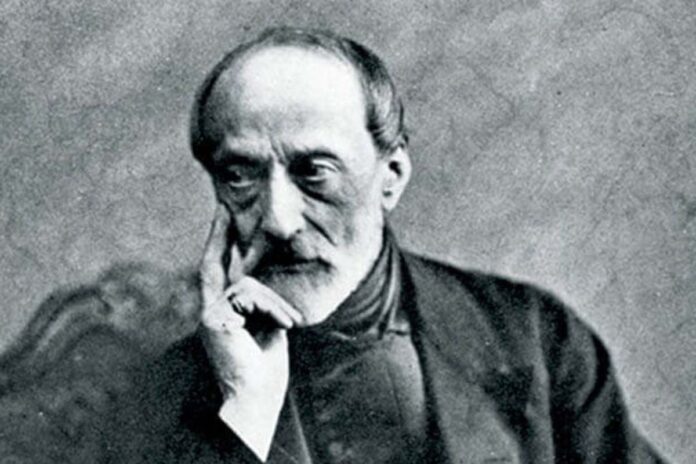Giuseppe Mazzini (22 June 1805 – 10 March 1872) was an Italian politician, journalist, and key figure in the movement for the unification of Italy, known as the Risorgimento. As an activist and visionary, Mazzini played a leading role in shaping the modern Italian nation by advocating for the independence and unity of the fragmented Italian states, many of which were under foreign control.
Introduction
Giuseppe Mazzini is often hailed as one of the most influential figures in the unification of Italy. Known for his revolutionary ideals and tireless advocacy for a unified Italian nation, Mazzini’s legacy continues to resonate in modern Italy. But who exactly was this visionary, and how did he contribute to the shaping of a unified Italy? This article will dive deep into his life, his political philosophy, and the lasting impact he had on the country’s history.
A fervent nationalist and republican, Mazzini’s ideas were deeply influenced by social-democratic principles, and he championed a vision of Italy as a democratic republic. His political philosophy, which emphasized the importance of national sovereignty and popular democracy, had a significant impact not only in Italy but across Europe, inspiring republican and independence movements. His thoughts influenced many later political figures, including U.S. President Woodrow Wilson, British Prime Minister David Lloyd George, Indian leaders like Mahatma Gandhi and Jawaharlal Nehru, as well as figures like Vinayak Damodar Savarkar and Golda Meir.
Mazzini’s commitment to the idea of a unified Italy laid much of the intellectual groundwork for the eventual establishment of the Kingdom of Italy in 1861. His legacy endures in both the Italian Republic and broader movements for democratic governance.
Who Was Giuseppe Mazzini?
Giuseppe Mazzini was born on June 22, 1805, in Genoa, Italy, into a time of political turmoil. He grew up during the Napoleonic Wars and witnessed the downfall of the old Italian city-states, which divided and controlled by foreign powers. Moreover, Mazzini’s education and early exposure to radical ideas ignited his passion for unifying Italy into a single republic. He would later go on to lead numerous revolutionary movements aimed at achieving this goal.
Mazzini’s Early Life and Influences
Mazzini’s early experiences shaped his passionate pursuit of a unified Italy. Influenced by his education in Genoa, he became drawn to the ideas of the Enlightenment and the works of thinkers like Rousseau and Voltaire. These ideas would lay the groundwork for his vision of a republican, democratic Italy.
Mazzini and the Risorgimento
The Risorgimento was the 19th-century movement for Italian unification, a period marked by widespread political unrest and revolutionary activity. While many figures played significant roles in this process, Mazzini was arguably the most visionary. His ideas went beyond just unifying Italy; he sought to establish a democratic republic in which the people had power, a stark contrast to the monarchies and foreign rulers dominating the country at the time.
The Formation of Young Italy
In 1831, Mazzini founded Young Italy (Giovane Italia), a secret society dedicated to the cause of Italian unification. This movement was revolutionary not just in its goals, but also in its use of modern political strategies, including propaganda and activism. Young Italy became a hub for Italy’s intellectuals, students, and revolutionaries, all rallying behind Mazzini’s ideals of liberty, equality, and fraternity.
Exile and Advocacy
Mazzini’s involvement in the revolutions of 1831 and 1848 led to his repeated exile. Despite being forced out of Italy on several occasions, he continued to work relentlessly from abroad to stir revolutionary action within Italy. His exile didn’t dampen his influence; instead, it allowed him to spread his ideas across Europe, linking Italy’s struggle to the broader cause of democratic revolution.
Mazzini’s Political Philosophy
At the heart of Mazzini’s vision was the idea of popular sovereignty. He believed that the people, not monarchs or foreign rulers, should have the right to govern. This led him to advocate for a republican form of government in Italy, one that would reject the old feudal systems and create a nation based on equality and justice.
Nationalism and Republicanism
Mazzini’s blend of nationalism and republicanism made him a unique figure in the political landscape of his time. While he was a strong nationalist, advocating for the unification of Italy into a single nation-state, he was equally committed to republican ideals, which led him to reject both monarchy and foreign domination.
His beliefs influenced countless other revolutionaries, including figures like Giuseppe Garibaldi and Count Cavour, although they often disagreed with Mazzini’s more radical approach.
Mazzini’s Legacy and Impact on Modern Italy
Giuseppe Mazzini’s influence extends far beyond his direct actions during the Risorgimento. His commitment to a democratic republic laid the foundation for the values that would later become ingrained in Italy’s political system. While Italy would eventually become a monarchy under King Victor Emmanuel II, Mazzini’s call for republicanism and democracy continued to inspire future generations.
The Mazzinian Vision of Italy Today
Mazzini’s legacy is still visible in modern Italy. His efforts helped shape the nation’s identity as a unified republic, and his belief in democracy and individual rights influenced Italy’s post-war constitution. Even today, the Republic of Italy stands as a testament to Mazzini’s dream of a nation ruled by its people.
FAQ Section
1. What did Giuseppe Mazzini contribute to Italy’s unification?
Mazzini contributed by advocating for a unified, republican Italy, founding the revolutionary group Young Italy, and inspiring other figures involved in the Risorgimento.
2. Was Giuseppe Mazzini a Republican?
Yes, Mazzini was a staunch republican who opposed monarchy and believed in the establishment of a democratic republic in Italy.
3. How did Giuseppe Mazzini’s ideas influence modern Italy?
His ideas on nationalism and democracy influenced the shaping of Italy’s modern political system, especially its republican form of government after World War II.
4. What is the Risorgimento?
The Risorgimento was the 19th-century movement for the unification of Italy, involving revolutions, wars, and diplomatic efforts to unify the various Italian states into one nation.
Wrapping Up: Mazzini’s Enduring Influence
Giuseppe Mazzini was not just a political figure; he was a revolutionary whose dreams of a unified, democratic Italy inspired generations. Although his vision of a republic was never fully realized in his lifetime, the ideals he championed continue to shape modern Italy. His work in promoting democratic values and the concept of a unified nation helped lay the groundwork for the Italy we know today.
If you’re fascinated by revolutionary leaders who shaped history, Giuseppe Mazzini’s life offers a remarkable story of passion, perseverance, and vision. His legacy serves as a reminder of the power of ideals and the enduring fight for liberty and unity.




